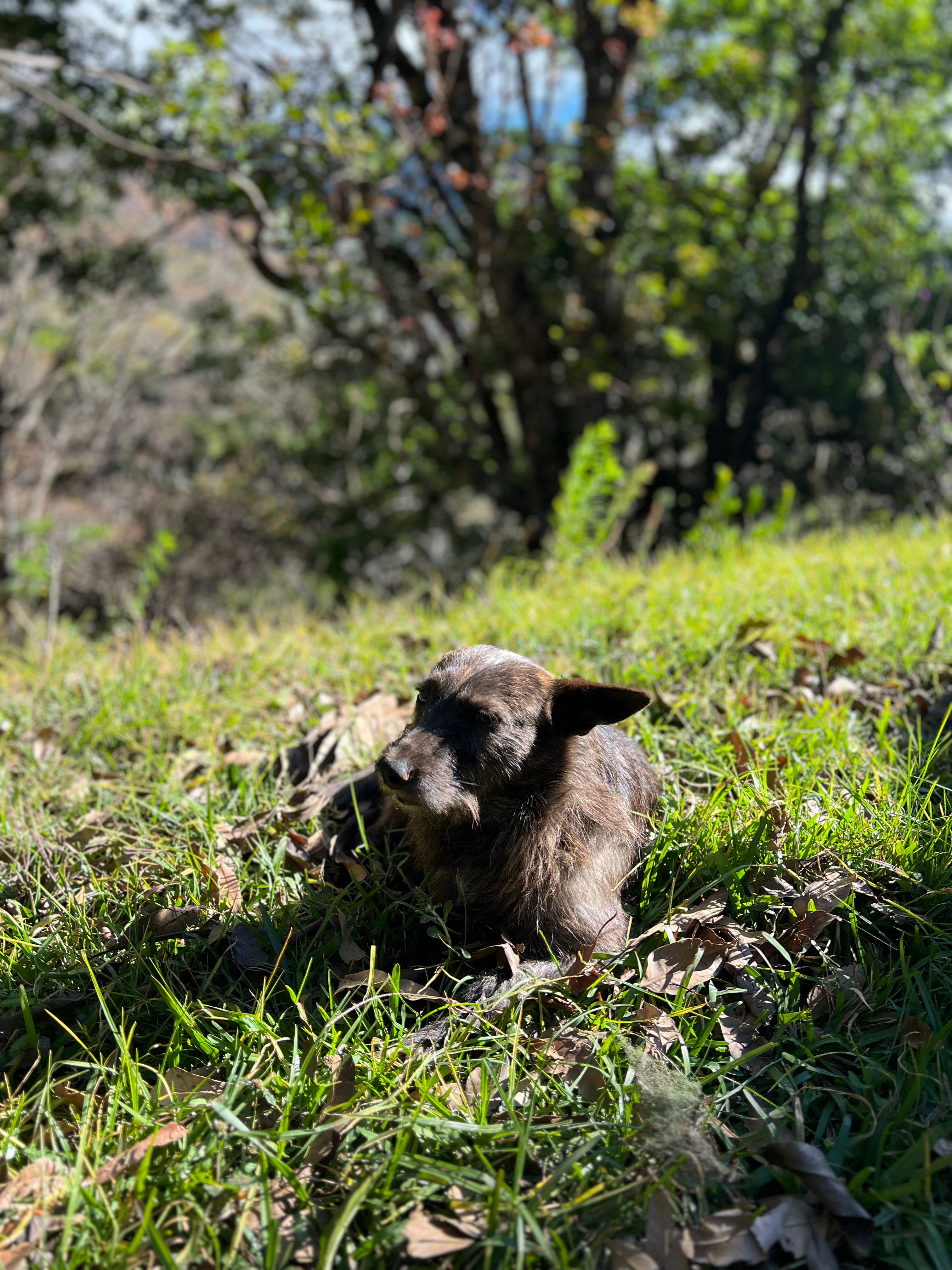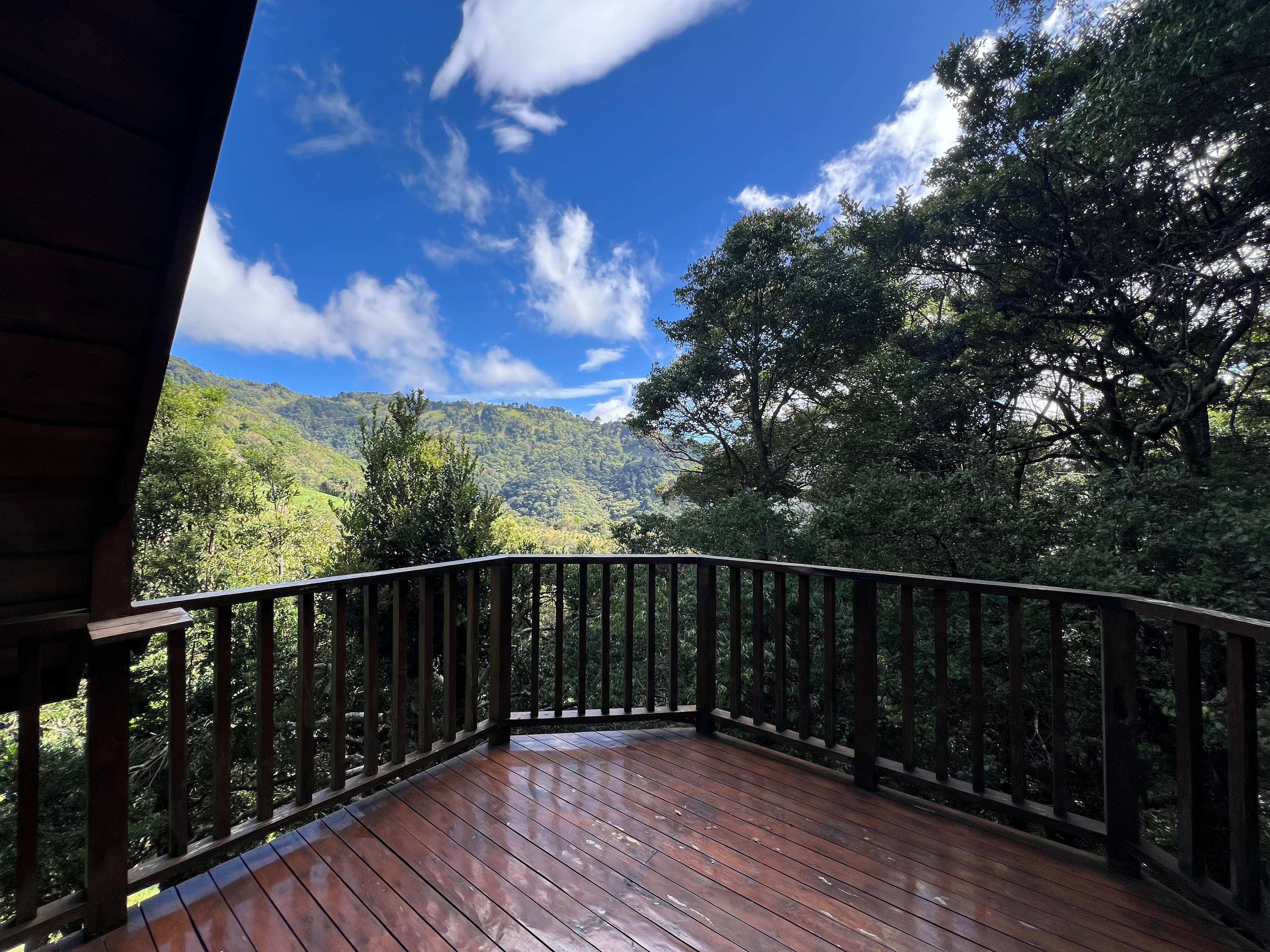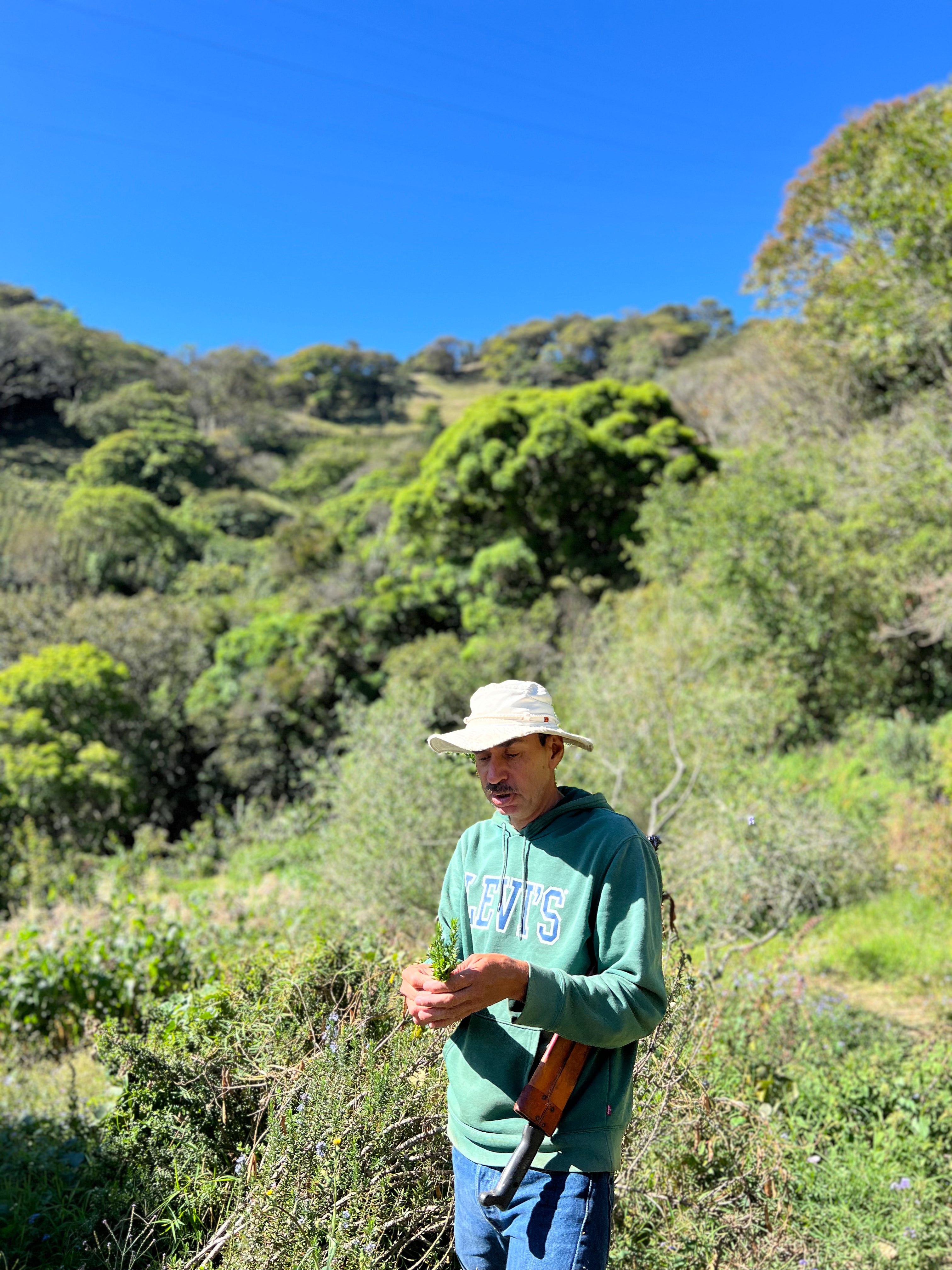

Jorge Vásquez and Finca Roble Negro
A Coffee with Roots and a Sustainable Vision
We venture into the mountains of Tarbaca, Costa Rica, to meet Jorge Vásquez Ureña and his Finca Roble Negro. This is not just a place where coffee is grown; it is a testament to passion, respect for the land, and commitment to sustainability.
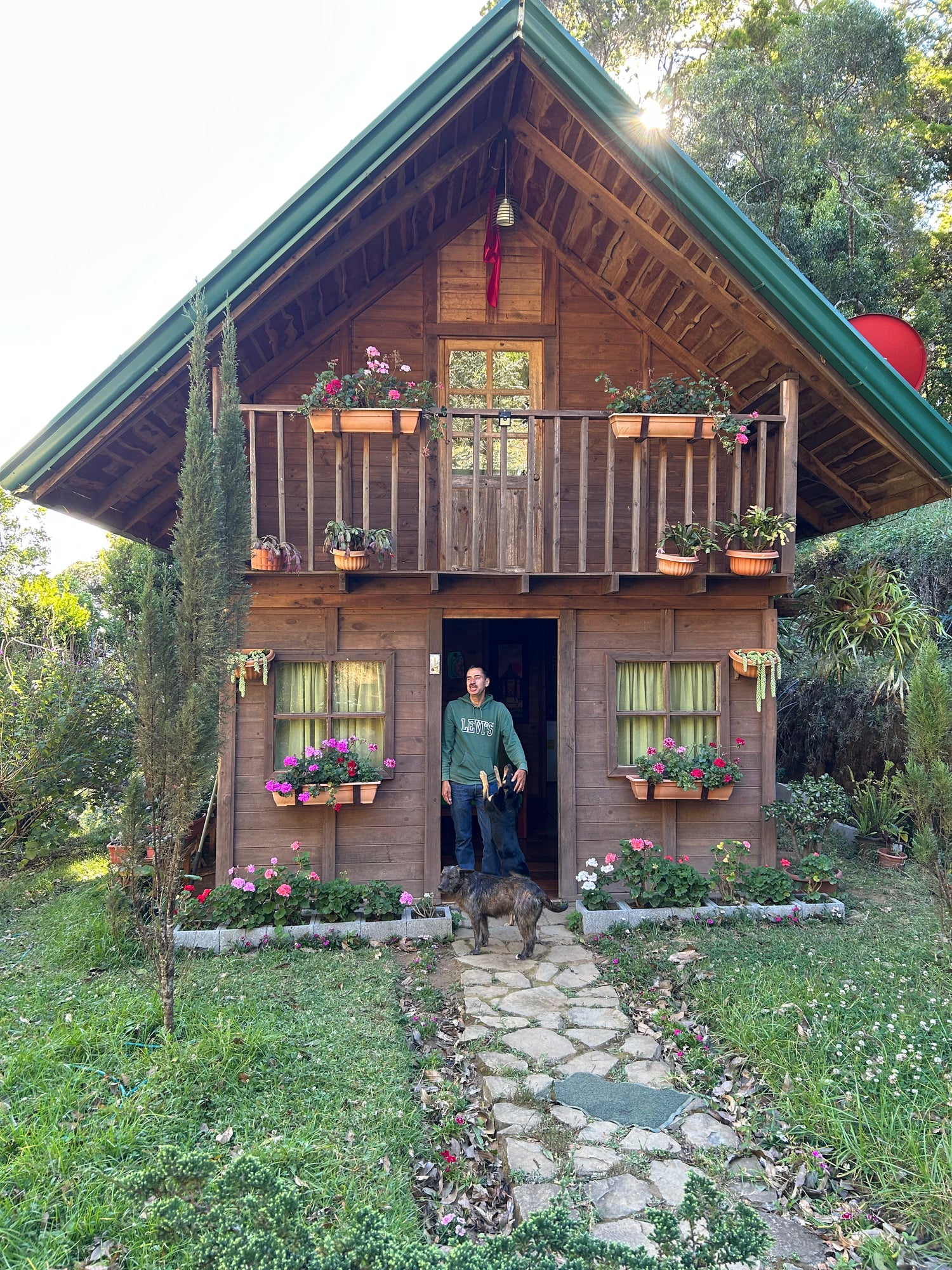
Meet Jorge Vásquez
Jorge is not a conventional coffee farmer. He sees coffee growing as both a family legacy and a commitment to nature. Since acquiring the farm in 2005, he has worked tirelessly to improve coffee quality while maintaining the ecological balance of the environment.
For Jorge, coffee is more than just a crop; it is an expression of the biodiversity that surrounds it. His farm is located in a region rich in wildlife and plant life, where cloud forests provide the perfect shade for his coffee plants.
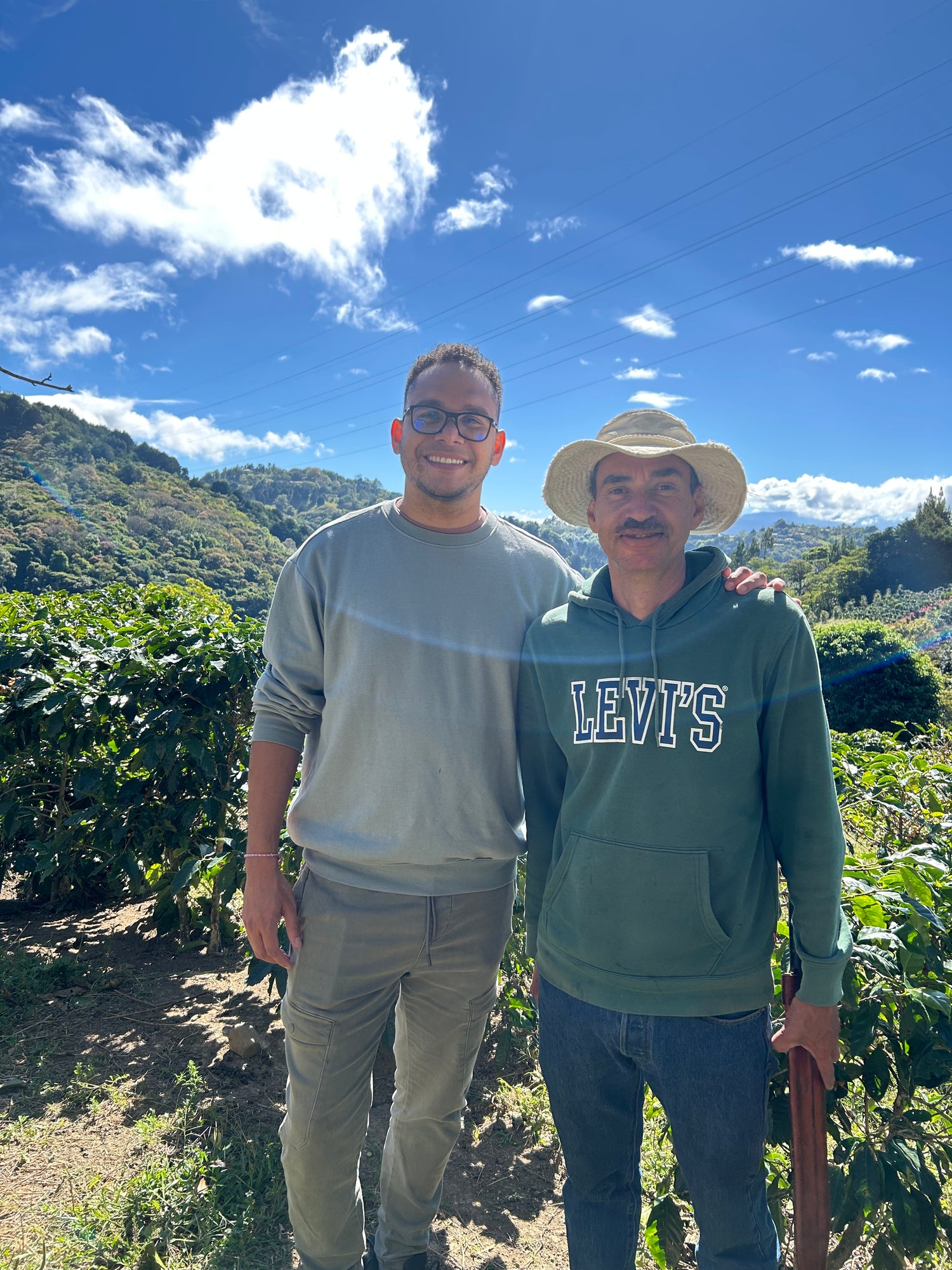
Sustainability at Finca Roble Negro
One of the pillars of Jorge’s philosophy is sustainable production. Instead of seeing nature as an obstacle, he integrates it into his production process. Here are some of the eco-friendly practices he has implemented:
Natural weed management: Instead of using chemical herbicides that can harm the soil and water sources, Jorge and his team use natural methods such as goat grazing. This system effectively controls weeds while naturally fertilizing the soil.
Water conservation and efficiency: The farm has a filtration and water recycling system, drastically reducing waste during coffee processing. Additionally, processing methods like Honey and Natural minimize water consumption without compromising coffee quality.
Forest and wildlife protection: Jorge has designated part of the farm for conservation, protecting water springs and local wildlife. Birds and other animals find refuge in these forests, contributing to a healthy ecosystem for coffee plants.
-
The Micromill and Coffee Quality
Jorge doesn’t just grow coffee; he also processes it in his own micromill. This control over each stage of production allows him to experiment and ensure the highest quality product.
One of Roble Negro’s standout coffees is Catuai Honey, a variety with notes of caramel, almond, tangerine, and vanilla. The Honey process not only enhances the coffee’s sweet and fruity flavors but also reduces water usage during processing.
-
The New Generation at Roble Negro
One of the most exciting aspects of this story is that the passion for coffee farming is being passed on to the next generation. Jorge’s niece, Daniela, has taken an active role on the farm, blending traditional techniques with modern innovations to continue elevating the quality of their coffee.
